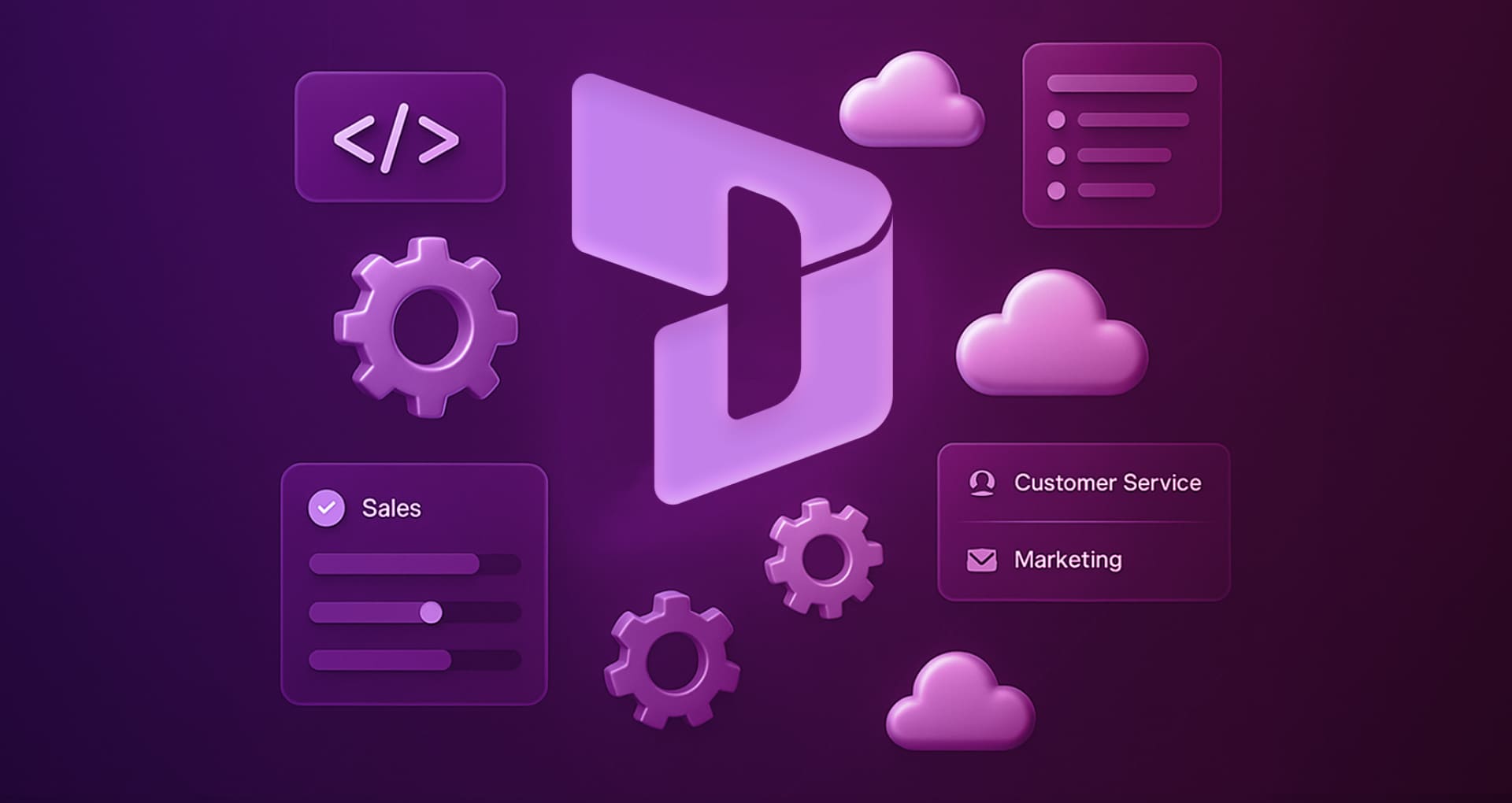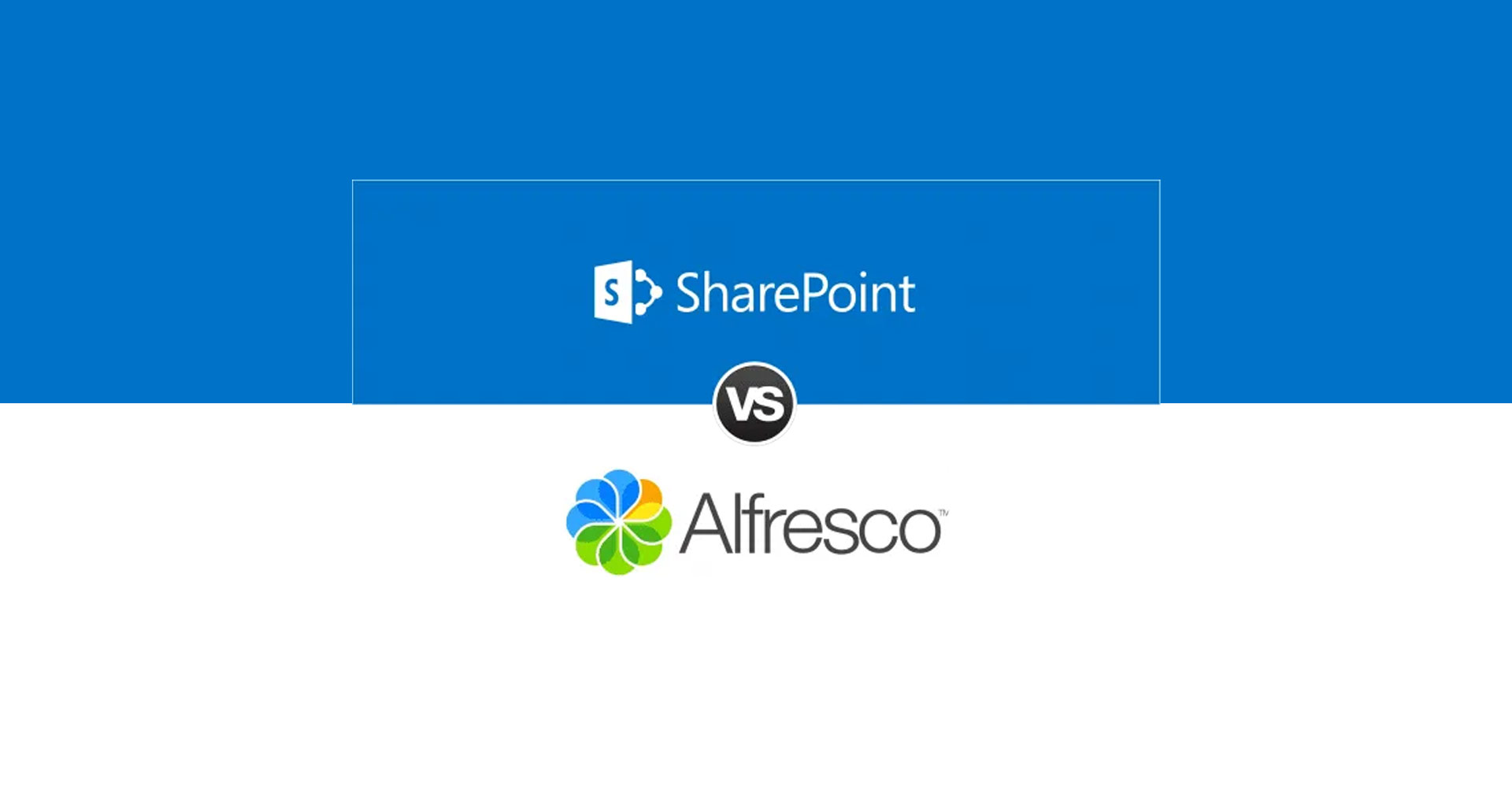Imagine waking up to an email from your CIO asking why Copilot gave a half-wrong answer in front of the board. The culprit? Not Copilot. Not AI hallucination. It’s your SharePoint, bloated, outdated, and silently sabotaging the very AI your company just paid millions to deploy. Microsoft saw that coming!
So, in 2025, it quietly dropped something radical into SharePoint, the Knowledge Agent in SharePoint, an AI-powered content curator that doesn’t just manage data, it makes your content AI-ready at enterprise scale.
This blog explains what Microsoft’s Knowledge Agent in SharePoint is and how it helps make your content ready for Microsoft 365 Copilot. You’ll learn why Microsoft built it, its main features, and how it connects SharePoint with Copilot to improve AI results. The informative piece of content also covers when the Knowledge Agent is available, how it’s licensed, and what real business benefits it offers.
At the wrap‑up we will walk you through how Rishabh Software can get you moving, where to find and access the Knowledge Agent in SharePoint, and the step‑by‑step process to turn it on in your environment.
What is Microsoft’s Knowledge Agent in SharePoint and How Does It Work?
Modern, data-driven firms constantly wrestle with keeping their SharePoint libraries tidy, up‑to‑date, and easy to find. The pain intensifies when AI assistants such as Copilot are forced to surface answers from poorly labeled files, especially when those answers drive business decisions. To meet that need Microsoft introduced the Knowledge Agent in SharePoint.
SharePoint Knowledge Agent is an assistant woven into SharePoint, silently learning the way your content is structured and gently fine‑tuning it. It can enrich metadata tidy up links distill files into summaries, and even spin up fresh pages or custom views from a straightforward user prompt. In short, it reimagines SharePoint as more, than a file store turning it into a content curator that constantly primes your data for dependable use, by Microsoft 365 Copilot and other AI tools.
Why is Microsoft Investing in the Knowledge Agent for SharePoint and Microsoft 365
Microsoft has come to the realization that even the sophisticated AI models stumble when their training data is unstructured, outdated or riddled, with inconsistencies. Microsoft’s roll‑out of the Knowledge Agent makes it clear that data quality is the cornerstone of any AI triumph.
The aim is to ensure every Copilot answer is built on well‑organized information, rather than random documents tucked away in SharePoint libraries. Microsoft’s latest funding move fits into its roadmap of making SharePoint, Viva, and Teams inherently smarter. When the content you feed the system is cleaner, AI can finally live up to its promise of delivering insights that are both reliable and context‑aware.
Top Features and Capabilities of Knowledge Agent in SharePoint
The Knowledge Agent in SharePoint adds automation and intelligence directly into the workspace. Instead of manually managing files, admins and content owners can let AI take care of repetitive cleanup and organization. Here’s a streamlined look at its top features:
Content Analysis & Enrichment
The agent goes over each document and page, ensuring their layout and underlying meaning, then offers pointers to sharpen clarity, keep the tone uniform, and raise quality. In doing so, it reshapes material into neatly organized, AI-ready information.
Automatic Metadata Extraction (Autofill Columns)
Knowledge Agent can identify key concepts, attributes, and entities within documents (like dates, names, categories, product IDs, and clients). It automatically drops them into the right SharePoint metadata columns. This reduces manual tagging effort and improves content discoverability.
Intelligent Library Organization (“Organize This Library”)
It examines an entire document library and recommends metadata columns, views, and organizational structures tailored to the types of documents stored. This ensures your document libraries become cleaner, easier to navigate, and better prepared for search and Copilot.
Create Views and Content Rules via Natural Language
Users can ask the agent to generate filtered or sorted views and automate rules for libraries (e.g., highlight overdue files or route documents). Non-technical users can create powerful configurations without navigating complex SharePoint settings.
File Summarization & Comparison
Knowledge Agent can generate concise summaries of long documents to help users quickly understand key points. It can also compare two documents to highlight differences for version reviews or audit checks.
Assist in Creating & Improving SharePoint Pages
For content authors, the agent can draft new page sections, FAQs, templates, or summaries directly within SharePoint. It can also rework existing copy, sharpen clarity, adjust the tone, and enhance accuracy.
Site Health Insights & Maintenance Recommendations
The agent identifies outdated pages, broken links, stale content, and content gaps, and highlighting areas users search for but can’t find. It then provides guidance to site owners on how to improve the site’s overall quality and relevance.
Retiring or Deprecating Outdated Content
Knowledge Agent can mark old or unused content as outdated, apply banners that warn users, and reduce the relevance of those items in search and Copilot responses. This strengthens content trustworthiness.
Natural Language Q&A Across Site Content
Users can ask questions directly in natural language, and Knowledge Agent pulls relevant answers from trusted site pages, documents, and libraries. This turns SharePoint into a searchable knowledge hub.
Audio Summaries of Content
For supported content types, the agent can convert page or document summaries into audio versions, helping users consume information faster or in accessibility-first scenarios.
Context-Aware, Role-Based Interface
The agent adapts its available features based on:
- User role: viewer, contributor, content manager, or site owner
- Location: on a page within a library or at the site level to ensure that users only see actions and recommendations that are relevant to them.
Collectively, these capabilities reduce manual work, boost accuracy and make content easier for both humans and Copilot to use effectively.
How Knowledge Agent Connects SharePoint with Copilot and AI Readiness
Copilot’s intelligence hinges, on the quality of the content it taps into. If your SharePoint environment is cluttered or inconsistent Copilot can end up spewing half‑finished answers. The Knowledge Agent in SharePoint bridges that gap by grooming your data so it’s ready for AI. Learn how ready your enterprise is for AI in our AI Readiness Assessment blog.
It methodically cleans the tags and imposes a structure on the material, giving Copilot a solid, trustworthy reference point. When metadata hits the mark and pages stay up‑to‑date Copilot can churn out insights, with context of offering vague suggestions.
At its core the SharePoint Knowledge Agent forms the layer that gets AI ready confirming that your data is neatly organized your governance is sturdy and your AI has every element in place to work at peak efficiency.
Knowledge Agent in SharePoint: Release Timeline, Licensing Details and Availability
Release Timeline
- September 2025: Public Preview goes live introducing tenant‑level opt‑ins.
- November 2025: Site‑level opt‑ins are introduced handing teams the discretion to select the sites where they’ll experiment with the feature.
- Early 2026 (expected): General Availability. A rollout, boasting a mature feature set and finalized licensing.
Licensing & Costs (Preview Phase)
- Requires an active Microsoft 365 Copilot license per user to access Knowledge Agent functionality.
- Autofill (AI metadata extraction + column population) uses a pay-as-you-go billing model.
- Microsoft includes 100 pages of free processing through December 2025 to encourage experimentation.
Availability & Limitations
- Preview is available to commercial tenants worldwide.
- Not supported in GCC, GCC High, DoD, or air-gapped environments.
- In multi-geo organizations, admins must enable the feature per region.
The Business Impact You Can’t Ignore
- Gives organizations a safe, low-risk environment to test AI-powered content optimization.
- Lets IT and content teams evaluate metadata enrichment, automation, and content cleanup before scaling.
- Creates a smoother path to broader AI adoption across SharePoint and Microsoft 365.
Business Value and Use Cases of Knowledge Agent in SharePoint for Enterprises
Organizations that use SharePoint a lot often face three main problems: files that stick around even after they’re no longer needed, inconsistent tags, and slow, manual review processes that slow down work. The Knowledge Agent in SharePoint helps solve these issues by automatically removing outdated content, improving metadata (tags), and making it easier to find what you need.
Here’s how it creates measurable business value:
1. Smarter Knowledge Management & Governance
Business Value: It helps rebuild trust, keeps SharePoint content secure, and reduces the risk of compliance issues.
Use Cases:
- Auto-detect and archive intranet pages that have become stale or don’t receive traffic
- Pull together duplicate assets from every department, then sweep away the trivial content that clutters the system.
- Auto-classify and tag policies, SOPs and knowledge articles keeping an eye on each one’s lifecycle.
- Enforce metadata standards for ownership, review cycles, and compliance alignment.
Impact: Fewer irrelevant pages · Higher content accuracy · Stronger compliance posture · More reliable Copilot grounding.
2. AI-Powered Metadata & Architecture Modernization
Business Value: Converts legacy content into structured, AI-ready assets that supercharge search and Copilot performance.
Use Cases:
- Bulk enrich metadata in legacy libraries using AI models.
- Apply consistent taxonomy across departments for better discoverability.
- Tag financial/legal documents with fiscal year, sensitivity, or regulatory classifications.
- Standardize metadata for intranet hubs and SharePoint sites.
Impact: Reduced manual tagging · Better enterprise search · Accurate Copilot responses · Structured data for AI agents.
3. Productivity Automation for Content Teams
Business Value: Frees up teams by eliminating repetitive content tasks and accelerating the content lifecycle.
Use Cases:
- Auto-generate summaries, FAQs, and insights from long-form content.
- Speed up HR/legal/IT content updates with AI-assisted templates.
- Generate “at-a-glance” versions of policies or onboarding docs.
- Reduce the need for SharePoint specialists through no-code tools.
Impact: Faster content creation · Shorter publishing cycles · Higher output with fewer resources · Better self-service enablement.
4. Enhanced Search & Retrieval for Employees
Business Value: Employees find answers immediately, easing the support load and accelerating onboarding.
Real‑World Ways to Use It:
- Make enterprise search smarter by layering in metadata and automating the tagging process.
- Fix links to the gaps of missing data and usher unindexed content into the index.
- Tap, into Copilot or similar bots to unearth the answers drawn from reputable sources.
- Automatically spin up FAQ content to handle the flood of IT, HR and Ops queries
Impact: tickets hitting the queue · Employees reaching proficiency faster · AI‑enhanced support delivering help · A richer engaged digital self‑service culture
5. Continuous Content Health Monitoring
Business Value: Maintains a knowledge base without the need for manual audits.
Real‑world situations where this comes in handy:
- Monitor for zero-traffic, stale, or outdated pages.
- Automatically flag broken links, expired policies, or missing metadata.
- Suggest updates or archival based on usage analytics.
- Trigger review workflows based on content age or compliance risk.
Impact: Clean, evergreen knowledge base. Fewer costly content errors. No manual audits needed. Better user confidence.
6. Cost Reduction & Operational Efficiency
Business Value: Cuts content management costs, reduces vendor reliance, and prevents regulatory mishaps.
Use Cases:
- Replace expensive manual audits with AI-based monitoring.
- Automate metadata tagging during content migrations.
- Eliminate legacy cleanup projects with continuous hygiene.
- Tag records for lifecycle and retention using AI.
Impact: Lower labor hours · Fewer consulting engagements · Decreased audit risk · Higher content ROI.
7. Copilot & AI Enablement at Scale
Business Value: Ensures context-aware answers powered by enterprise knowledge.
Use Cases:
- Structure SharePoint content for Copilot grounding.
- Build Copilot Studio custom agents using tagged, validated data.
- Enhance chatbot experiences with structured FAQs and metadata-rich docs.
- Reduce hallucinations via improved content accuracy.
Impact: Higher Copilot accuracy · More enterprise use cases unlocked · Controlled Copilot access · Reliable automation outcomes.
8. Compliance, Governance & Risk Mitigation
Business Value: Strengthens audit readiness and ensures regulatory alignment at scale.
Use Cases:
- Auto-tag sensitive content by compliance category or data type.
- Track ownership and enforce review cycles for regulated content.
- Identify non-compliant or outdated legal/policy documents.
- Support eDiscovery and litigation readiness with structured metadata.
Impact: Stronger governance · Less regulatory exposure · Faster audit prep · Automated compliance tracking.
Where to Find and Access the Knowledge Agent in SharePoint
Accessing the Knowledge Agent is simple. As soon as your tenant turns the feature on, a floating AI button pops up in the lower-right corner of SharePoint pages and document libraries. The button sits inside the workspace, so users can open it while reviewing policies, editing pages, or managing files. The Agent adjusts its menu based on the user’s role and the page they are viewing.
- Site Owners see site improvement tools such as “Improve This Site,” which helps them spot outdated pages, broken links, and other issues.
- Content Creators and Library Managers see options like “Organize This Library,” which helps them structure documents and metadata more efficiently.
- Visitors and Read-Only Users can select “Ask a Question” to get quick answers drawn from the site’s content.
The Agent shows only the actions that match the user’s permissions and current task. This design keeps the experience focused and allows teams to work more efficiently across SharePoint.
How Rishabh Software Can Help You Enable Knowledge Agent in SharePoint and Become Copilot-Ready
Deploying the Knowledge Agent in SharePoint goes beyond flipping a switch. Delivering impact calls for a disciplined rollout plan, crystal‑clear governance, and a solid technical foundation. That’s where Rishabh Software can make a difference.
Here’s how Rishabh Software can help your organization enable and optimize the Knowledge Agent effectively:
- Plan a guided pilot. We help you identify the best sites to start with and define success metrics before scaling organization-wide.
- Validate your environment. Our team checks licensing, admin permissions, and SharePoint version compatibility to ensure readiness.
- Enable with confidence. We assist in configuring the Knowledge Agent for the right sites and roles, aligning with your business goals.
- Verify and fine-tune. After activation, we help you review metadata accuracy, cleanup performance, and user adoption.
- Establish governance. We create clear rules for metadata standards, content review cycles, and automation boundaries.
- Scale strategically. Once the pilot succeeds, we guide your team in expanding the rollout securely and cost-effectively.
Partnering with Rishabh Software gives you a battle‑tested roadmap that puts the Knowledge Agent to work on your behalf. Leverage our SharePoint development services to make it AI-ready, sharpen Copilot’s accuracy, and turn collaboration into smarter decisions across Microsoft 365.
SharePoint Just Got Its Second Brain
The Knowledge Agent in SharePoint changes how organizations handle data. It turns SharePoint from a simple content library into an intelligent system that organizes, updates, and improves itself.
With Knowledge Agent, outdated pages are flagged, metadata stays accurate, and Copilot can finally deliver clear, reliable answers. It helps teams work smarter by keeping information clean and easy to find.
When used with proper governance and planning, Knowledge Agent strengthens your Microsoft 365 environment and makes your data truly AI-ready. It gives SharePoint a second brain that keeps learning and helping your business stay ahead.








